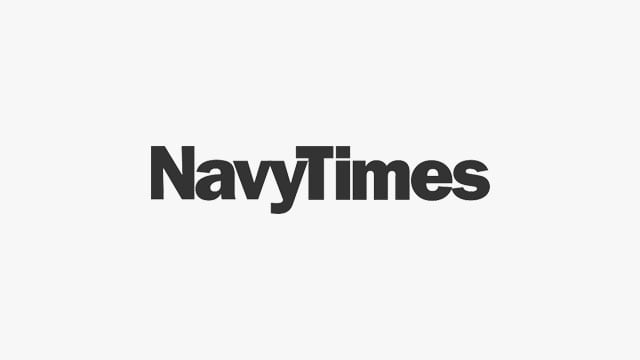The International Space Station, which orbits earth nearly 300 miles overhead, is now commanded by a naval aviator.
Navy Capt. Butch Wilmore, a Tennessee native and F/A-18 fighter pilot with nearly 7,000 flight hours and more than 660 carrier landings, took command of the station Nov. 9, and will be there until March.
Air Force Col. Terry Virts, a veteran F-16 pilot and fellow U.S. astronaut, arrived at the station recently and will be there until May.
Wilmore and his crew of astronauts from across all over the globe performs research that may someday will someday push human space exploration NASA into the far reaches of the solar system.
Wilmore, iIn an exclusive interview with Military Times, Wilmore — who wears a gold-crested Navy command ball cap during the mission — said the opportunity to command the ISS was a special moment in his Navy career.
"As you know, in the Navy, as soon as you come in you start being groomed for leadership," Wilmore said, via a satellite link from the space station. "This is the first opportunity in my more than 20 years that I've had an opportunity to command anything. It's an honor and a privilege."
Wilmore, who is a test pilot, said the discipline of his military career served him well in making the transition to the space program.
"In the test work you have to be disciplined," he said. "You plan before you fly a test, you execute your plan – you don't deviate from that plan. And I think space flight is very similar."
Wilmore is in the unique position of commanding Russian cosmonauts. But despite tensions back on earth, Wilmore said none of that has manifested itself on the ISS.
"It if wasn't for the news, I wouldn't know there were any tensions whatsoever," he said. "For the jobs we do day in and day out … there were no tensions [and] no discussion about it. Very kind, very cordial: These people are passionate about their work, passionate about training us for what we're doing now. So you'd never know anything about it."
Wilmore, who has a gold-crested Navy command ball cap he wears for the ISS mission, that he wears, is serving alongside another service member, Air Force Col. Terry Virts, another fighter pilot turned astronaut, who also spoke to Military Times.
During the interview, Virts reacted to the news of the successful launch and recovery by the amphibious transport dock Anchorage of the new spacecraft capsule Orion. NASA hopes that Orion will one day ferry astronauts to asteroids and even Mars.
"Orion is a very important part of the future of our space program," Virts said. "It allows us to leave earth and come back to earth at very high speeds. Right now we're traveling at 17,000 miles per hour, but if you return from the moon or from Mars, you'd be going 25,000 miles per hour, which is a lot higher and you need a sturdier capsule.
"It was a big day. It was very good news for America and for NASA that it worked as well as it did."
See the whole interview on MilitaryTimes.com.

David B. Larter was the naval warfare reporter for Defense News.




